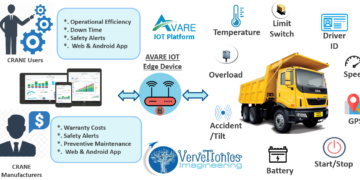2020 was the year that made businesses understand the value of online presence. Many of them got chucked out because they could not conduct online operations.
Businesses that established themselves and successfully captured their share in the online market are now facing a big challenge in the name of data security.
According to inc.com, 60% of all startups wind up within six months of facing a cyberattack. This percentage is not going down until businesses embrace a few ways to ensure that their data is safe and secure.
But before we delve into that, let us look at its significance in 2021.
Why is data safety important for modern businesses in 2021?
A business cannot continue if it must deal with cyberattacks now and then. The harsh truth is that we cannot rely on authorities to protect against potential cyberattacks that can harm our business.
If a business has to conduct its operations, capture market share, draw visitors to its website and make them buy stuff, website security is essential.
In many cases, businesses succeed in marketing, sales, data collection, lead generation, and product promotion. A small failure in security makes them lose all that within a blink of an eye.
So, if you do not want that to happen with your business, you must comply with the following seven ways to secure it.
7 Ways in Which Organizations can Protect their Data
Get SSL certificate
SSL certificate can be a mega addition to your website security.
An SSL certificate encrypts data that is being transferred between the server and the client.
SSL is comprised of 2 functions, namely:
- Handshake Protocol
- Remote Protocol
The handshake protocol is used in the authentication process. It generates the public key that is further shared with the client.
The remote protocol, on the other hand, uses the shared keys and communicates with the server.
If you have website with multiple domains, then Comodo wildcard SSL certificate is one of the best options in the market. Not only is it a cheap option, but it also comes with a plethora of perks.
Always Keep Track of Your Company Data
As a business owner, you must always stay informed about where your data is kept and who can access it.
There should be systematic data storage so that it does not get bundled over and it is easier to keep track of.
Moreover, authorized access is another thing to take care of. You must not allow access to your data to anyone without a background check and trustworthiness.
Even the most trusted admins can make blunders. Thus, it is better to keep the access power in your hands and keep track of where your data gets transferred.
Encrypt your Data across all Devices
Encryption makes your data inaccessible to hackers. It protects your data while transferring it to the cloud or your USB.
Mega brands never keep their data in decrypted modes. Every device, whether held in their proximity or outside company premises, contains encrypted data only.
Even if security gets breached, a company’s core plans are still safe, if kept in an encrypted format.
Hackers will not be able to access it; thus, the company remains safe and can work with the same continuity temporarily.
Cloud Protection is Mandatory
In this tech-savvy world of 2021, if you do not have a cloud backup, then you are heading for a catastrophe.
Devices and hardware devices can fail anytime, and you cannot control them no matter how securely you keep them.
Cloud service providers employ robust security technology that outflanks even the best companies’ on-site servers.
They are a reliable source of security on which you can upload your entire databases.
However, make sure that you encrypt your data even while uploading your files on the cloud as it can get hacked in transit.
Train Employees on all Levels of Security
Hackers do not want to target the most aware and concerned parties in the organizations; instead, they would target C-level employees in touch with data.
C-level employees are far away from top management and are vulnerable to manipulations.
They are the main target of hackers, which is why training them is essential. From top to bottom, every employee in your organization must know the consequence of phishing emails, malicious codes, spyware, and how to repel them.
One man’s mistake can cause severe concussions, and the company ends up losing all its data.
Implement Bring-Your-Own-Device Policies
Since the lockdown in 2020, companies are moving towards a more agile way to tackle communication problems.
If an employee has their device lined up with the company’s work, it is assumed that he/she will keep it safe.
Since it is their device, they would not take its protection casually and resist clicking on unsolicited links, repelling malicious attacks.
Another benefit is that data gets scattered over various devices, making it more secure; however, some organizations restrain from this model because they believe it’s dangerous to lend your data outside the company premises.
Implement Role-based Access Control
Role-based access control allows organizations to distribute data access systematically. Every employee who has access to some amount of data gets based on his/her job role.
He/she can only access data to the extent his/her role allows. This policy will help organizations keep track of where their data is going and who is accessing it.
There are many security software(s) that allow organizations to implement this strategy effectively.
Moreover, you can even choose a time frame within which a person can access the data.
The role-based approach helps distribute admin access safely.
To Conclude
Data security will be a big issue in 2021. As organizations rush forward to get a competitive edge in the online spectrum, hackers will also take their chances.
But if you follow the seven tips mentioned above, then you can convert your website into a secure fortress.
Whether your business is small or big, these seven tips will help you keep hackers at bay.






























































